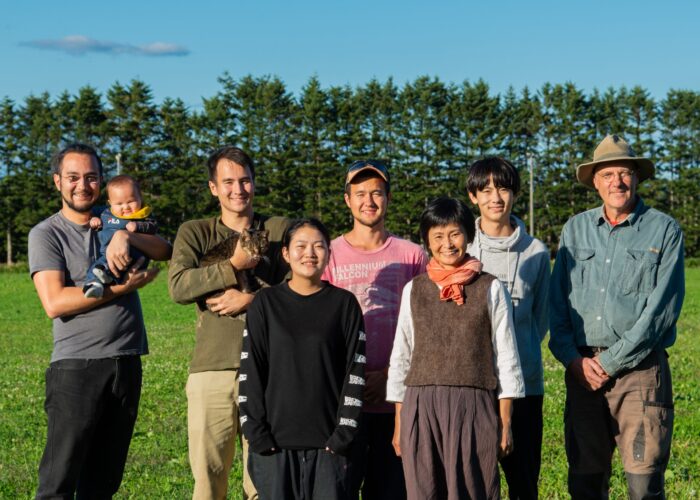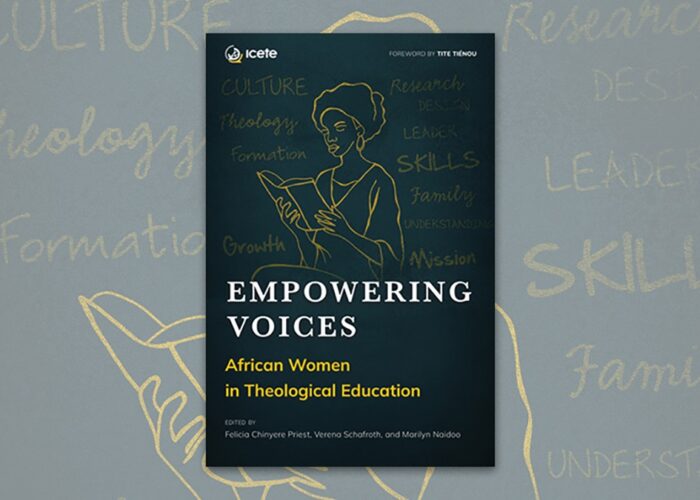ELKHART, Ind. (Mennonite Mission Network) — In Raleigh, N.C., a program for immigrants in a Catholic parish grew to enroll 300 people after three years. Because of the English-teaching program, many of Raleigh’s immigrants – mostly Hispanic – now see Catholicism as the faith that has welcomed them.
The program, started by a Filipino Catholic woman with a heart for outreach, got Mauricio Chenlo wondering: How could the Mennonite Church expand its reach into the Hispanic community?
In his new job, the Raleigh pastor will be a resource person to help the church stretch.
In January, Chenlo began as Hispanic church planting academy program director, a new position created through a partnership between Iglesia Menonita Hispana (Hispanic Mennonite Church) and Mennonite Mission Network. Chenlo joins the Mission Network’s U.S. Ministries team, allowing the North Carolina-based pastor and church planter to work with conferences, congregations and partnerships to help them develop Hispanic programs based on their individual strengths.
Dean Heisey, Mission Network co-director for U.S. Ministries, said the new position is part of a major paradigm shift about church planting within Mennonite Church USA.
“During the last century, mission agencies, or conferences and agencies, often planted churches,” Heisey said. Today, he continued, most planting begins at the congregational level with conference and agency support, not through grants and a centralized budget. "We are putting together networks of supportive congregations that share a vision. We’re trying to be adaptable to the times.”
North America and North American Mennonites, Chenlo said, are increasingly multicultural. New church plants must adapt to the demographics of a country that now boasts the third-largest Hispanic population in the world, according to the U.S. Census Bureau, and a denomination where Hispanics are the second-largest ethnic group.
“The new churches are going to be multicultural, not because we say it, but because the society and urban society is becoming more multicultural,” he said.
Samuel Lopez, moderator of Iglesia Menonita Hispana, said the ongoing growth in the Hispanic population offers a challenge to Mennonites to plant churches in cities where no Mennonite witness currently exists. Chenlo’s role, he said, can both challenge and revitalize churches in both the Hispanic and non-Hispanic realms.
“This position can help us to keep our missionary vision alive,” Lopez said. “Mennonite Church USA will become a true multicultural and multiracial denomination. By this composition, we will show the true spirit of the church of Jesus.”
Chenlo hopes to help the Caucasian portion of Mennonite Church USA adapt their ministries to Hispanic culture (and the cultures of other ethnic groups) as well as develop new Hispanic churches.
“Somehow in this global village, we have realities that function quite differently but we treat them all the same,” Chenlo said. “One of my gifts is to bridge realities and connect resources and people’s interests.”
He hopes to spend his first year on the job meeting with leaders from the denomination, conferences and congregations to dream about how to better serve a multicultural congregation. Answers, he added, will vary drastically according to location and context, but ministry must always start with the heart.
“If you have a heart for ministry, then you start looking for resources and tools,” he said. “My role is to find effective ways to (connect) intentions with the right tools.”
A native of Argentina, Chenlo said children of first-generation Hispanic immigrants are being educated in the United States through high school, college and seminary, bridging gaps between home cultures and North America. He believes that promoting leadership programs for young adults who have the language and cultural skills to thrive in traditional multiple ethnic cultures will be key to the future of the church.
While the Instituto Bíblico Anabautista (Anabaptist Biblical Institute) offers biblical and theological training, Chenlo said churches “also need a set of tools to organize a group of people to plant a church” – his mandate is to help provide those tools. He said IBA, IMH and Mennonite Mission Network will work together with the Hispanic Mennonite community as it evolves.
Chenlo is associate pastor for youth at Raleigh (N.C.) Mennonite Church and an urban ministry director for Mennonite Mission Network in partnership with Virginia Mennonite Board of Missions and the Eastern Carolina District. He has worked with church planting and multicultural urban ministries across eastern North Carolina, including Building Together Ministries, a racial reconciliation program and community peace clinic. He spent four years in Ecuador as a mission worker with Mennonite Board of Missions, a predecessor agency of Mennonite Mission Network.
Chenlo joins Heisey, Karl McKinney, minister of church planting, and Kuaying Teng, minister of Asian ministries, on the Mission Network church-planting team.



